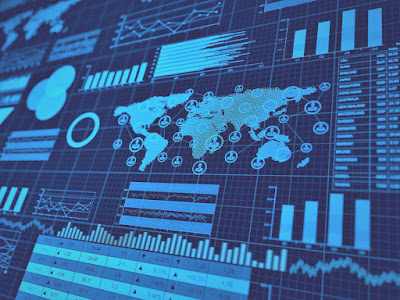 |
| Business Intelligence vs Business Analytics |
Business Intelligence for Business (2/5): How AI is transforming BI
Business Intelligence for Business (3/5): Big data and BI
Business Intelligence For Business (4/5): Trends In BI For 2020Business Intelligence for Business (3/5): Big data and BI
For the last installment on this series, I want to bring your attention to the most basic question, how does BI fit in the era that’s run by Data and Analytics. For any business to thrive, some of the most important questions for the management is, what is working, what is not and how to improve it. Due to the vast amount of data available from the systems, this becomes the tricky part of the data-driven era.
BI and BA both provide methods and tools for handling data and help in making sense of it. So how do they differ from each other?
To understand the difference, we must define what BI first. BI uses a structured form of data such as the ones from ERP or financial systems. BI Tools like Power BI has grown more intuitive and user-friendly over the years. There are also customized BI tools such as Voyager BI which works well with custom-developed systems. Analytics goes beyond this and offers additional features such as prescriptive analytics and predictive analytics. Analytics is the process of exploring data and reports in order to extract meaningful insights, which can be used to better understand and improve business performance. Analytics takes what of the data and provides answers to why and how.
BI is the gateway to Analytics
Depending on the kind of user you ask, Data analyst or otherwise people categories BI either as a subset of Analytics or vice versa. To me, BI is the gateway to Analytics and enables more to the business requirements. There are few tangible differences we have with BI and Analytics. BI is often used to run the existing business operations whereas Analytics is used to build on/ change the existing business operations and improve productivity. Analytics uses data repositories, data lake, modern data warehouse, and BI uses only a subset of these.
In summary Business Intelligence and Analytics differs by,
BI uses past and current data whereas Analytics uses past data to extract insights and run the business operations that drive the customer needs and increase productivity.
BI mostly concentrates on reporting the analyzed data whereas Analytics concentrates on multiple tools that perform different operational applications using different tools.
Business Intelligence is the way of analyzing the existing data whereas Business Analytics will have Business Intelligence reports acts as inputs for the analytics to process the extracted information in a more sophisticated way to visualize the analyzed data.
Both approaches are valuable, just in different ways. It’s important to know whether you are more in need of descriptive analysis, predictive analysis, or both before you invest in a platform.
For example, it’s great to have a way to generate predictions about future growth, but if you can’t drill down into the underlying data to understand the basis for these predictions or tweak your dashboards to give you exactly the insights you need, you may be limited in your business planning.
It is vital to focus on what you need the system to do, and who will use it. How detailed your insights need to be? How tech-savvy are the people who would be using the system? How much control and visibility do you need? Are you more interested in understanding how you got here (present) or getting an idea of where you’ll go next(future)? Not sure about any of these? Have a chat with us and figure out which would be an ideal way to go about BI for your business.
Srivatsan Aravamudan - Sri
Senior Solution Consultant


No comments :
Post a Comment